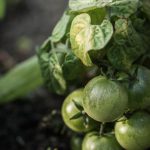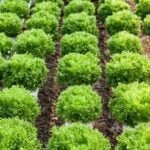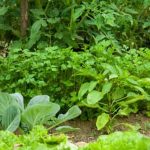Are you interested in starting a vegetable gardening in Houston? Vegetable gardening Houston enthusiasts enjoy unique benefits and challenges due to the city’s climate and soil conditions. With the right knowledge, tools, and resources, you can grow a variety of delicious vegetables right in your own backyard. This article will provide valuable insights and tips to help you succeed in your vegetable gardening endeavors.
Houston’s subtropical climate poses both opportunities and challenges for vegetable gardening. The warm temperatures and ample sunshine create favorable growing conditions, but the region’s high humidity and occasional extreme weather can also present obstacles. By understanding the specific needs of vegetables in Houston’s climate, you can make informed decisions to maximize your garden’s productivity.
From selecting the right vegetables for Houston’s soil and weather to preparing the soil for successful planting, this article will guide you through every step of the vegetable gardening process. Whether you are a novice or experienced gardener, there is always something new to learn when it comes to adapting your techniques to suit Houston’s unique environment.
Keep reading to discover expert advice on choosing suitable vegetables, essential tools and supplies, best practices for watering and fertilizing, pest management strategies, harvesting tips, and more.
Benefits of Vegetable Gardening in Houston’s Climate
Houston’s climate provides a unique and favorable environment for vegetable gardening. With its long growing season and mild winters, Houston is an ideal location for growing a wide variety of vegetables. In this section, we will explore the numerous benefits of vegetable gardening in Houston’s climate.
Extended Growing Season
One of the main benefits of vegetable gardening in Houston is the extended growing season. With mild winters and hot summers, Houston allows for a longer period of growth for many vegetables. This means that gardeners can enjoy multiple harvests throughout the year, providing an abundance of fresh produce for their families.
Adaptability to Various Vegetables
Houston’s climate is also well-suited to a wide range of vegetables, including heat-loving crops like tomatoes, peppers, and okra, as well as cool-season crops like lettuce, broccoli, and carrots. This adaptability allows gardeners to experiment with different types of vegetables and diversify their homegrown produce.
Reduced Use of Chemicals
Another benefit of vegetable gardening in Houston is the reduced need for chemical inputs. The warm and humid climate supports healthy plant growth, reducing the likelihood of pest and disease problems. This means that gardeners can rely less on synthetic pesticides and herbicides, resulting in healthier and more sustainable produce.
Overall, vegetable gardening in Houston offers an array of benefits due to its unique climate. From an extended growing season to adaptability to various vegetables and reduced reliance on chemicals, Houston provides an excellent environment for flourishing gardens that yield an abundant harvest of fresh produce.
Choosing the Right Vegetables for Houston’s Soil and Weather
When it comes to vegetable gardening in Houston, it’s crucial to choose the right vegetables that can thrive in the city’s unique soil and weather conditions. Here are some vegetable options that are well-suited for vegetable gardening in Houston:
- Tomatoes: Tomatoes are a popular choice for Houston gardens due to their versatility and ability to adapt to the city’s warm climate.
- Peppers: Bell peppers, jalapenos, and other pepper varieties thrive in Houston’s hot and humid weather, making them a great addition to any vegetable garden.
- Okra: Okra is a heat-loving vegetable that grows well in the Houston area and produces abundant harvests throughout the summer months.
- Squash: Both summer and winter squash varieties, such as zucchini and butternut squash, are well-suited for the growing conditions in Houston.
In addition to these vegetables, other suitable options for vegetable gardening in Houston include cucumbers, sweet potatoes, eggplant, and green beans. When selecting vegetables for your garden, it’s important to consider factors such as sunlight requirements, water needs, and potential pest resistance.
To ensure a successful vegetable gardening experience in Houston, it’s also important to pay attention to planting times. For example, heat-tolerant crops like tomatoes and peppers should be planted after the threat of frost has passed. Understanding the specific planting times for each vegetable variety will help maximize your garden’s yield.
By choosing the right vegetables for Houston’s soil and weather conditions, you can set yourself up for a bountiful harvest of homegrown produce. With proper care and attention, your vegetable garden can flourish in this unique climate.
Tips for Preparing the Soil for Successful Vegetable Gardening
When it comes to successful vegetable gardening in Houston, one of the most important factors to consider is the soil. The soil in Houston can be quite challenging, but with the right preparation, you can create a thriving garden that produces an abundance of fresh vegetables. In this section, we will discuss some essential tips for preparing the soil for successful vegetable gardening in Houston.
Soil Testing and Amendments
Before you start planting your vegetable garden, it’s crucial to test the soil to determine its pH level and nutrient content. You can purchase a soil testing kit from a local garden center or have a professional test your soil.
Once you know what amendments are needed, you can add organic matter such as compost or aged manure to improve the fertility and structure of the soil. This will help provide essential nutrients for your vegetables and improve water retention.
Raised Beds and Containers
Many Houston gardeners opt for raised beds or containers for their vegetable gardens, especially if they are dealing with heavy clay or poorly draining soils. Raised beds allow for better control over the soil composition and drainage, while containers offer portability and versatility. Whether you choose raised beds or containers, be sure to fill them with high-quality soil mix specifically formulated for vegetable gardening.
Proper Tilling and Preparation
Proper tilling and preparation of the soil is key to creating an optimal growing environment for your vegetables. Begin by removing any existing vegetation or weeds from the area where you plan to plant your vegetables. Then, use a tiller or shovel to loosen and aerate the soil, breaking up any compacted areas. Avoid working with wet soil, as this can lead to compaction and poor drainage.
By following these tips for preparing the soil, you can set your vegetable garden up for success in Houston’s unique climate. With well-prepared soil, your plants will have a strong foundation for healthy growth and bountiful harvests throughout the growing season.
Essential Tools and Supplies for Vegetable Gardening in Houston
When it comes to vegetable gardening in Houston, having the right tools and supplies is essential for a successful and bountiful harvest. Here are some must-have items for any aspiring Houston vegetable gardener:
- Quality Trowel and Hand Cultivator: A sturdy trowel and hand cultivator are indispensable for planting, transplanting, and weeding in the often clay-heavy soil of Houston.
- Gardening Gloves: Protect your hands from thorns, rough soil, and common garden chemicals with a comfortable pair of gardening gloves.
- High-Quality Hose and Watering Can: Given Houston’s hot climate, reliable watering is crucial. Invest in a durable hose and watering can to ensure adequate moisture for your vegetables.
In addition to these tools, there are several important supplies that every vegetable gardener in Houston should have on hand:
- Organic Compost or Fertilizer: To enrich the often compacted clay soil prevalent in Houston, regularly amend your garden beds with high-quality compost or fertilizer.
- Mulch: Help retain moisture and suppress weeds by applying a generous layer of mulch around your vegetable plants.
- Sunscreen and Sun Hat: Protect yourself from the intense Texas sun while working in your garden by wearing sunscreen and a wide-brimmed hat.
By equipping yourself with these essential tools and supplies, you will be well-prepared to tackle the unique challenges of vegetable gardening in Houston while maximizing your chances of a successful harvest.
Remember that having the right equipment is only one part of the equation. It’s also essential to know how to use these tools effectively to care for your plants properly. Seek advice from local experts or join community garden groups in Houston to learn more about using these tools for successful vegetable gardening.
Best Practices for Watering and Fertilizing Vegetables in Houston
Watering and fertilizing vegetables in Houston can be a bit of a challenge due to the city’s unique climate. The hot and humid weather can lead to faster evaporation, meaning your vegetables may need more frequent watering compared to other regions. When it comes to fertilizing, it’s important to choose the right nutrients for your vegetable plants to thrive in Houston’s soil.
One of the best practices for watering vegetables in Houston is to water deeply but less frequently. This encourages the roots to grow deeper into the soil, making them more resilient during dry spells. Be sure to water in the morning or evening to reduce water loss through evaporation. Using mulch around your plants can also help retain moisture in the soil.
As for fertilizing, it’s crucial to have your soil tested in order to determine which nutrients are lacking. In Houston, sandy soils are common, which means they drain quickly and may require more frequent fertilization. Look for fertilizers with balanced ratios of nitrogen, phosphorus, and potassium (N-P-K) suitable for vegetable gardening in Houston.
When it comes to vegetable gardening in Houston, proper watering and fertilizing are essential components for a successful harvest.
| Watering Vegetables | Fertilizing Vegetables |
|---|---|
| Water deeply but less frequently | Have soil tested for nutrient deficiencies |
| Water in the morning or evening | Look for balanced N-P-K ratios in fertilizer |
Dealing With Common Pests and Diseases in Houston Vegetable Gardens
Houston’s subtropical climate can make vegetable gardening a rewarding but challenging endeavor. One of the biggest challenges faced by gardeners in this region is managing common pests and diseases that thrive in the humid conditions.
Some of the most prevalent pests include aphids, whiteflies, squash bugs, and caterpillars, while diseases like powdery mildew, bacterial spots, and fusarium wilt can also pose a threat to your vegetable crops. However, with the right knowledge and proactive measures, it is possible to mitigate these issues and enjoy a successful harvest.
Integrated pest management (IPM) strategies are essential for effectively dealing with common pests in Houston vegetable gardens. This approach focuses on prevention and minimal use of chemical pesticides by combining biological, cultural, and mechanical control methods. For instance, introducing beneficial insects like ladybugs or lacewings can help naturally control aphid or whitefly populations. Regularly inspecting your plants for signs of infestation or disease is also crucial in catching issues early before they have a chance to escalate.
In addition to utilizing IPM practices, selecting disease-resistant vegetable varieties suited for Houston’s growing conditions can help mitigate the risks of plant infections. When it comes to pests such as caterpillars or squash bugs, using physical barriers like row covers or hand-picking them off your plants can be effective control methods.
Proper spacing between plants to ensure good air circulation and avoiding overhead watering can also help prevent the spread of certain diseases in your Houston vegetable garden. By staying vigilant and incorporating these preventive measures into your gardening routine, you can minimize the impact of common pests and diseases on your precious crops.
Expert advice and resources specific to vegetable gardening in Houston can be valuable assets when it comes to managing common pests and diseases in your garden. Local agricultural extension services or horticultural societies often offer workshops, publications, and online resources tailored to the region’s unique gardening challenges.
Seeking guidance from experienced local gardeners or professionals familiar with vegetable gardening in Houston can provide valuable insights on identifying, preventing, and addressing pest and disease issues effectively. By staying informed about best practices for pest and disease management specific to Houston’s climate, you can increase your chances of achieving a bountiful harvest from your homegrown vegetables despite the challenges posed by local environmental factors.
Overall recommendations:
- Utilize integrated pest management (IPM) strategies
- Select disease-resistant vegetable varieties
- Implement physical barriers and regular inspections
- Seek expert advice from local resources
Harvesting and Storing Your Houston-Grown Vegetables
When it comes to vegetable gardening in Houston, the satisfaction of harvesting and storing your own homegrown produce is unmatched. There’s nothing quite like picking fresh tomatoes, peppers, and other veggies from your garden and enjoying them at their peak flavor. However, proper harvesting and storing techniques are essential to ensure that your hard-earned fruits and vegetables stay fresh for as long as possible.
One important thing to keep in mind when harvesting vegetables in Houston is the timing. Different vegetables have different peak harvest times, so it’s essential to familiarize yourself with the specific ripening cues for each type of vegetable you’re growing in your garden.
For example, tomatoes are best picked when they are fully colored but still slightly firm, while leafy greens like lettuce and spinach should be harvested just before they reach full maturity for the best taste and texture.
In addition to proper harvesting techniques, knowing how to store your vegetables correctly is equally crucial. Some vegetables, such as potatoes and onions, need cool, dark storage areas with good ventilation to prevent them from spoiling. On the other hand, vegetables like squash and cucumbers are best stored in a dry environment with moderate humidity. Understanding the unique storage needs of each vegetable will help you extend their shelf life and minimize waste.
| Vegetable | Harvest Timing | Storage Method |
|---|---|---|
| Tomatoes | Fully colored but slightly firm | Store at room temperature away from direct sunlight |
| Leafy Greens (lettuce, spinach) | Harvest just before full maturity | Refrigerate in a plastic bag with air holes |
| Potatoes & Onions | Harvest when foliage begins to die back | Cool, dark storage area with good ventilation |
Properly harvesting and storing your Houston-grown vegetables not only ensures that you get the most flavor out of your produce but also helps minimize food waste. With a little knowledge and planning, you can enjoy the fruits of your labor well beyond the growing season.
Expert Advice and Resources for Vegetable Gardening in Houston
When it comes to vegetable gardening in Houston, seeking expert advice and utilizing available resources is essential for a successful harvest. Whether you are a beginner or an experienced gardener, there are numerous local resources and experts willing to share their knowledge and assist with any challenges you may encounter.
One valuable resource for vegetable gardening in Houston is the Harris County Texas A&M AgriLife Extension. They offer a wide range of educational programs, workshops, and publications specifically tailored for the local climate and soil conditions. Their experts can provide valuable guidance on selecting the right vegetables, soil preparation, watering techniques, and pest management strategies.
Another great source of expert advice for vegetable gardening in Houston is joining local gardening clubs or online communities. These groups often have experienced members who are willing to share their successes and failures, as well as tips and tricks specific to vegetable gardening in Houston. Additionally, they may organize plant swaps, garden tours, or guest speakers who can offer valuable insights into successful vegetable gardening in the area.
For those seeking personalized assistance with their vegetable garden, hiring a local horticulturist or landscape professional can be beneficial. These professionals have the expertise to assess your specific gardening needs and provide customized recommendations for your vegetable garden. By seeking expert advice and utilizing available resources in Houston, you can significantly increase your chances of a bountiful harvest from your vegetable garden.
Conclusion
In conclusion, vegetable gardening in Houston offers a multitude of benefits and rewards for those who are willing to put in the time and effort. Whether you are a seasoned gardener or just starting out, the unique climate of Houston presents both opportunities and challenges for growing your own produce. By choosing the right vegetables, preparing the soil properly, and following best practices for watering and fertilizing, you can enjoy a bountiful harvest of homegrown goodness.
One of the most satisfying aspects of vegetable gardening in Houston is being able to enjoy fresh, organic produce right from your own backyard. From juicy tomatoes to crispy lettuce, there’s nothing quite like the taste of vegetables that you’ve grown yourself. In addition to the delicious flavors, there are also health benefits associated with eating fresh fruits and vegetables, making it even more rewarding to have your own garden in Houston.
Whether you’re looking to save money on groceries, reduce your carbon footprint, or simply enjoy the process of nurturing plants from seed to harvest, vegetable gardening in Houston can be a fulfilling experience. With access to expert advice and local resources, as well as a supportive community of fellow gardeners, there are plenty of opportunities to learn and grow as a vegetable gardener in Houston.
So roll up your sleeves, get your hands dirty, and start reaping the rewards of homegrown produce in this unique climate.

If you’re looking to get into vegetable gardening, or are just looking for some tips on how to make your current garden better, then you’ve come to the right place! My name is Ethel and I have been gardening for years. In this blog, I’m going to share with you some of my best tips on how to create a successful vegetable garden.





